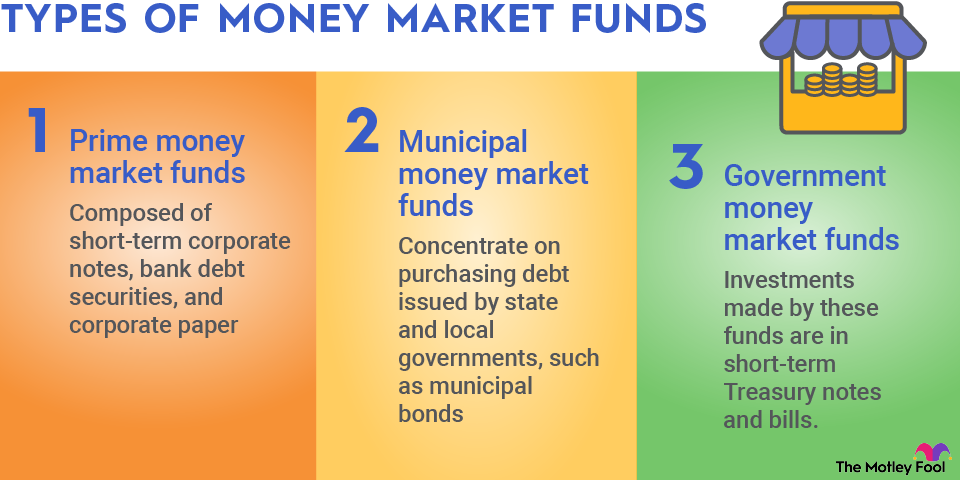The term "metaverse" has been around for decades and was coined by author Neal Stephenson in his 1992 sci-fi novel Snow Crash. But the metaverse has gone viral lately, helped along by Mark Zuckerberg's decision to rebrand Facebook as Meta (META +1.10%). Since then, metaverse has become a buzzword, frequently invoked by the media to get article clicks, capture eyeballs, and use as a platform to discuss cool tech stocks.
But what exactly is the metaverse? Are we all doomed to live in it one day? And is it really worth all the hype?

What is the metaverse?
Broadly speaking, the metaverse is defined as a virtual world, or an extension of the physical world using computing technology.
In Stephenson's Snow Crash and other works of fiction, such as Ernest Cline's Ready Player One (adapted into the 2018 Stephen Spielberg film of the same name), the metaverse is accessed using virtual reality (VR) headsets. Basically, they are an advanced computer that immerses a user in the experience rather than presenting it on a traditional computer, smartphone, or monitor.
In other words, rather than simply viewing something (a live broadcast, webpage, work document, etc.) on a display, the metaverse is imagined as allowing us to be a more direct participant in a virtual experience.
A person's presence in virtual worlds is represented by an avatar that can interact with the virtual world and other people in it. According to Zuckerberg in an interview on the Lex Friedman podcast, "... one definition of this is [the metaverse] is about a time when immersive digital worlds become the primary way that we live our lives and spend our time."
Parts of the metaverse
Does that mean the metaverse won't exist until we are all trapped inside this virtual fantasy realm? Not exactly. By some definitions, the metaverse doesn't have to be accessed using VR. Three-dimensional worlds are already in existence today and can be used without VR. While some might argue they aren't immersive enough (meaning it should feel like we are in the virtual space rather than just looking at it on a two-dimensional screen) to be called part of "the metaverse," early versions of this ambiguous tech term are here.
As for how the metaverse is used, here are three broad cases.
1. Video games
An early use for the metaverse is in the video game industry. Think popular video games such as Microsoft's (MSFT +0.14%) Minecraft, Epic Games' international hit Fortnite, or the online game and creation platform for kids Roblox (RBLX +0.42%).
Although most people still play video games using a traditional device like a computer, smartphone, or gaming console, all the components for an immersive experience are there in some games: A customizable avatar representing the player is made, the virtual world can be interacted with by the player, there's a social component with other players, and an economy exists in which digital goods can be bought and sold.
As for the digital economy component, goods can be purchased with physical money such as dollars, with currency developed specifically for the game (such as Robux in the Roblox platform), or even with cryptocurrencies (some blockchain projects are even selling virtual real estate in the form of NFTs). This concept of the economy being extended into a virtual world (or onto the internet itself) was a primary reason some cryptocurrencies like Bitcoin (BTC +1.37%) were developed.
Most of today's games are rudimentary in comparison with how some envision the future of the metaverse economy, but this digital exchange of virtual products using digital currency within a video game provides a general idea of how it might work.
2. Social interaction
The metaverse isn't being developed solely as a gaming platform. In Stephenson's Snow Crash, an important aspect of the metaverse was social interaction, meaning the ability to communicate with others in a near-lifelike setting. This opens up the ability to communicate, exchange information, and share experiences with others face-to-face (avatar-to-avatar?), even though two or more people might be physically separated from each other.
From this perspective, an immersive virtual world makes a lot of sense. Zoom Video Communications (ZM -0.04%) became a household name during the COVID-19 pandemic. However, staying in touch via two-dimensional video has its limitations. It turns out that non-vocal communication cues such as eye contact and posture were being taken for granted before "Zooming" became a thing.
Social apps such as Meta's Horizon Venues (which, to be fair, is still very early on in development) try to solve some of these issues. Available via a Quest 2 VR headset, 3D avatars can give a greater sense of presence when interacting with friends and family, and even live events can be attended together via the app. For example, the NBA has made some games available on Horizon Venues, giving Quest 2 users an immersive way to watch a basketball game complete with interaction with other fans. Sound like a stupid idea? Maybe. But when the television was a new thing, some people might have thought viewing a live event on a TV rather than attending in person was a dumb idea, too.
3. Business use
Social interaction can be bridged into other practical uses for the metaverse. Large parts of the workforce already spend most of their time using impersonal digital tools (email, documents, Zoom meetings, etc.). So the metaverse for work is a question of when these digital experiences become more immersive, collaborative, and human.
Top semiconductor designer Nvidia (NVDA -0.36%) CEO Jensen Huang described the metaverse as a collection of virtual worlds, each one created by a different company, that are connected to each other via the web and can be accessed throughout the workday. Nvidia also envisions the metaverse as extending into the physical world, like the ability to interact with a bot (via an avatar) that can be used to retrieve information or complete work tasks.
Other use cases include constructing "digital twins" of a physical space, either one already in existence or one that has yet to be built. The ability to view and interact with a virtual representation of the physical world has tremendous value. For example, a factory can first be built virtually to aid in construction planning, experiment with different manufacturing line layouts, and simulate production under different conditions. The cost savings and increased efficiency of such capabilities can't be overstated.
Related investing topics
What the metaverse means for you
Just like the internet isn't a singular thing (it's made up of countless websites and applications and cloud services), the metaverse isn't being built by one lone company. Even Meta, which has laid claim to the whole technology concept with its name change, says on its website that "the metaverse isn't a single product one company can build alone."
That's why so many companies have started talking about the metaverse, or building a part of what could eventually become the metaverse. The internet has become a pervasive part of everyday life, so the metaverse could simply become an extension of it. Rather than thinking about the metaverse as some grand plan to trap us in dystopian use of technology, many companies envision use of the internet and computing technology that is more meaningful and natural. In fact, the metaverse is already generating revenue for some companies such as Meta, Nvidia, Roblox, and 3D development platforms like Unity Software (U +0.09%).
Of course, there are problems that will need to be solved. Security and trust are a top concern; how will people be able to verify that an avatar they're interacting with in the metaverse is truly who they claim to be? However, as Zuckerberg and other metaverse proponents point out, many of the issues that arise with immersive virtual worlds are innately human problems that predate the internet and even computing technology.
The question now is, when will the metaverse happen? The answer will be different for each of us and depends on if and when use of an immersive 3D space -- perhaps using a virtual or augmented reality headset or glasses -- becomes better than a traditional computer, smartphone, TV, etc. But, without a doubt, early forms of the metaverse are already in development and being used by some early adopters of technology.


















